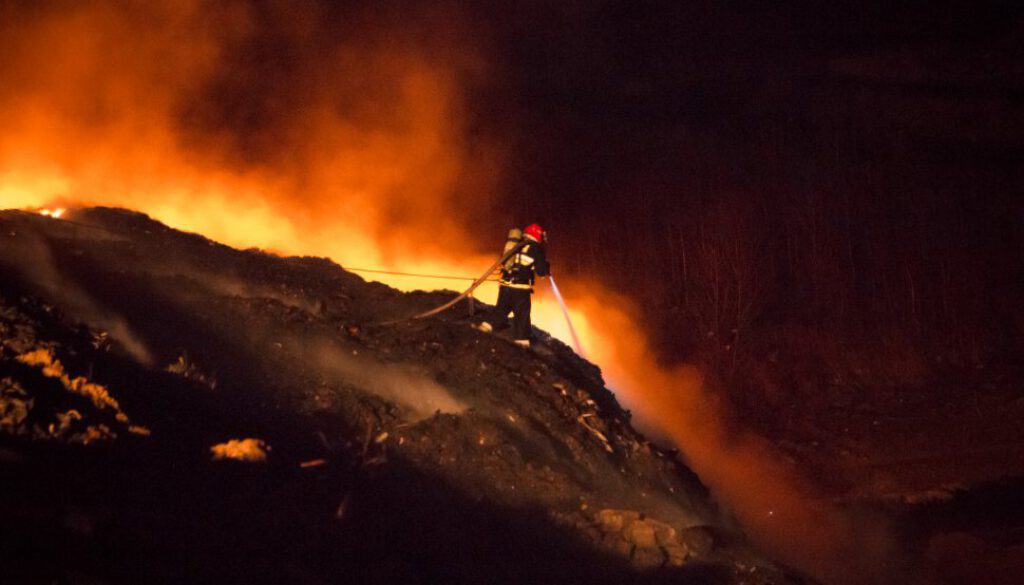New Delhi, March 10: After almost a year of being in the limelight for a mounting waste problem and bio-mining projects, the Brahmapuram dump site, which comes under the jurisdiction of the Kochi city corporation, is once again making media headlines as a fire broke out, which seems to have left the city in a hazardous situation.
A dumpsite covering a vast arena of 110 acres reported a fire breakout on the 2nd of March, which was then brought under control on the 5th of March. The city’s air quality index, though, suggests the contrary, as the toxic fumes from the burning plastic have still blanketed the city.
Southern Naval Command was the first to report a massive fire breakout in the plant, which then turned into a full-fledged operation to bring the fire under control, which was carried out by Kerala’s fire and rescue personnel and the Indian Navy and Indian Air.
Amid all of this, the Kerala High Court on 7th March took a sweep at the Kochi Municipal Corporation under a suo motu case and summoned the secretary of the body regarding the steps to be taken by the civic body for implementing the Solid Waste Management and Handling Rules, 2016. Alongside the secretary, the District Collector, Ernakulam, and the chairman of the Kerala Pollution Control Board (KPCB) were also the ones who got summoned.
In the backdrop of the fire incident, exposés of corruption and allegations were streamlined against Bengaluru-based Zonta Infratech Private Limited as they had been rewarded 54 crores for the bio-mining of legacy waste in late 2021 due to having close ties with a senior leader of the CPI (M) party. The company was also questioned in the past by the corporation secretary regarding the poor quality of work they performed at the site for the project they were assigned to.
Being a major dump site for the coastal city of Kochi corporation and neighboring municipalities and panchayats, the site tends to have received breakdowns in recent years due to its failed infrastructure, even after an upgrade to 390 tons of waste received daily from 250 tons daily capacity when it was inaugurated in 2008.

